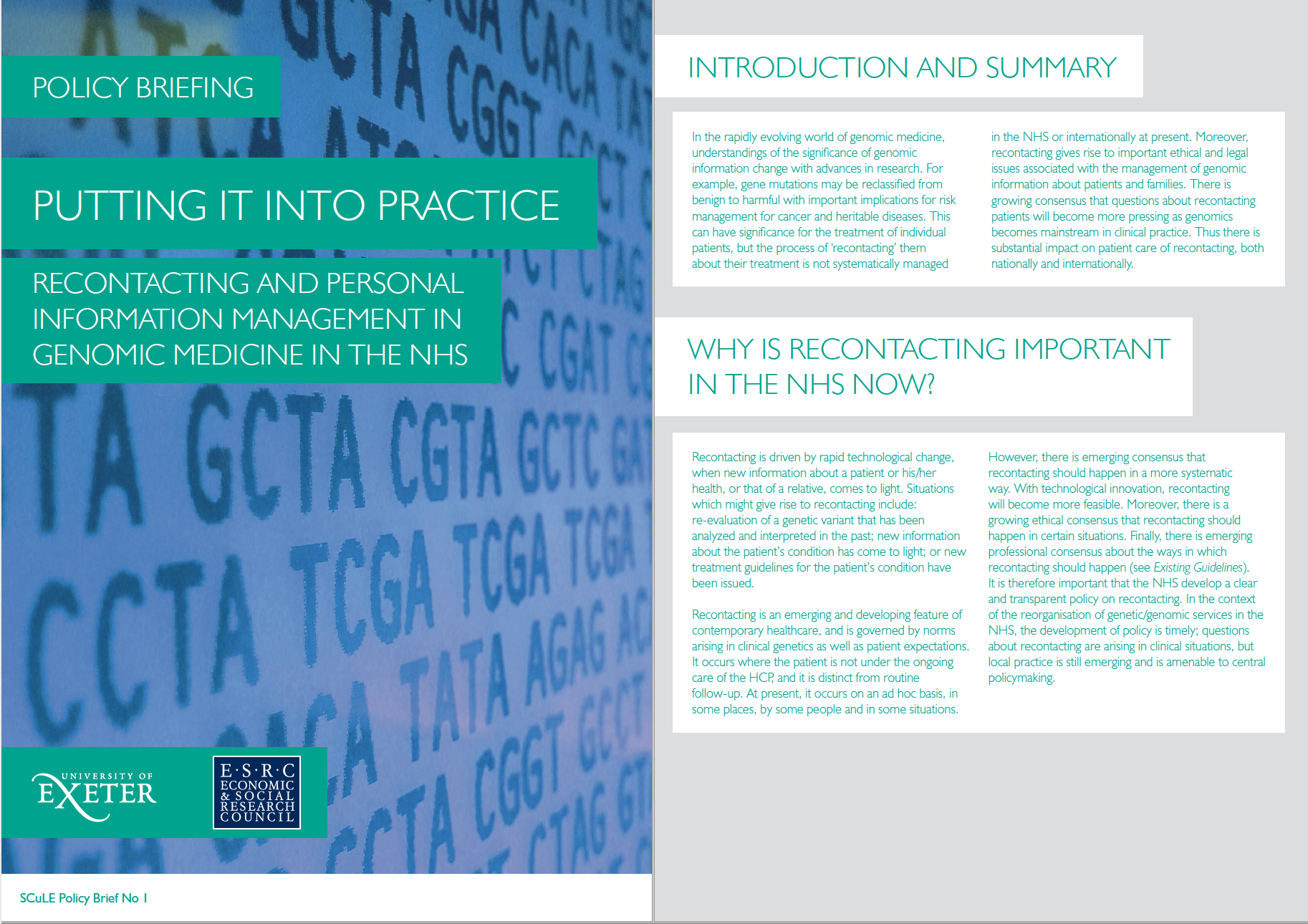The Centre for Science, Culture and the Law at Exeter publish their first policy brief on genomic medicine and personal information management based on research, SCuLE Policy Brief No 1.
In the rapidly evolving world of genomic medicine, understandings of the significance of genomic information change with advances in research. For example, gene mutations may be reclassified from benign to harmful with important implications for risk management for cancer and heritable diseases. This can have significance for the treatment of individual patients, but the process of ‘recontacting’ them about their treatment is not systematically managed in the NHS or internationally at present. Moreover, recontacting gives rise to important ethical and legal issues associated with the management of genomic information about patients and families.
This Policy Brief recommends that it is essential that the NHS develop policy for recontacting in clinical genetics. Such policy may be a standalone policy focused on recontacting, or it may be part of a policy addressing a broader set of ethical, legal and social questions.
This policy brief arose following the discussion at a workshop entitled “Recontacting patients in clinical genetics in the NHS workshop” that took place in London on 29 November 2018. This project was funded by an ESRC IAA Award and led by Dr Naomi Hawkins and Prof Susan Kelly. The Policy Brief also draws on the findings of the 2014-2017 ESRC Funded Recontacting in Mainstreaming Genetics Study, led by Professor Susan Kelly.


